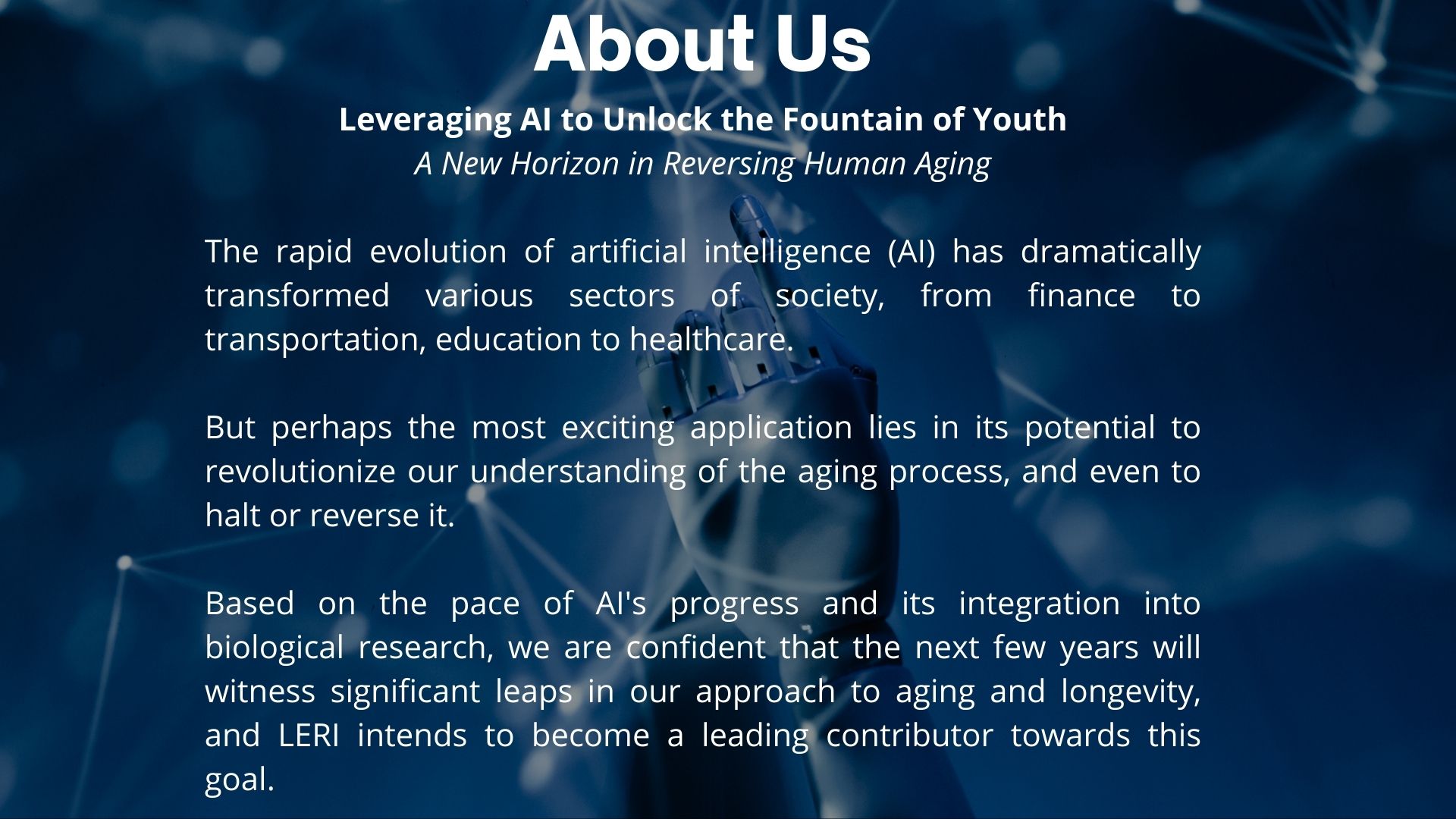
The complexity of aging, with its myriad biological, chemical, and genetic interactions, has long been a formidable obstacle. However, AI, with its ability to process and analyze vast amounts of data rapidly and accurately, provides a unique tool to untangle this intricate web.
Machine learning algorithms, a subset of AI, can be trained to recognize patterns in large datasets, including genomic, proteomic, and metabolic data. By applying these algorithms to biological data from diverse populations, we can identify the key genetic and environmental factors that contribute to aging. This could enable us to understand why some individuals age slower than others and could potentially allow us to develop personalized interventions not only to slow, but stop aging. And potentially even reverse it.
Furthermore, AI can help accelerate drug discovery and development, a process traditionally fraught with high costs and lengthy timelines. Through AI, we can identify and validate potential drug targets for aging more efficiently, as well as repurpose existing drugs whose effects on lifespan were previously unknown. For instance, metformin and rapamycin, drugs used for diabetes and organ transplant rejection respectively, have shown potential lifespan-extending effects. AI can help us uncover more of these serendipitous findings.
AI can also be instrumental in advancing our understanding of senescence, the state of cell cycle arrest that cells undergo after a certain number of divisions. Senescent cells accumulate with age and secrete substances that can harm nearby cells and tissues. AI can aid in the development of senolytic drugs, which selectively eliminate these cells, thereby improving tissue function and potentially extending healthy lifespan.
Genetic and epigenetic modifications also hold promise in reversing aging. CRISPR technology has made gene editing a reality, and AI can help us predict the effects of specific genetic modifications on aging. Similarly, AI can help us understand the complex epigenetic changes that occur with aging and how to reverse them.
AI provides us with an unprecedented opportunity to understand and intervene in the aging process. As we continue to refine these technologies and integrate them into the field of aging research, the possibility of slowing or even reversing aging is within our reach. This is not a question of if, but rather of when. The future of longevity, powered by AI and revealed through LERI's collective of researchers, is a future of extended health-span, improved quality of life, and the exciting possibility of turning back the hands of time.
IS IT REALISTIC TO EXPECT STOPPING AND EVEN REVERSING THE AGING PROCES IN 7 TO 10 YEARS?
Even though we're dealing with highly complex biological processes, the rise of AI and the impressive capabilities of models like GPT-4 are enhancing our understanding of aging biology. And the rapid, exponential growth of AI, rather than a linear progression, is propelling advancements in related technologies at speeds never seen before. These, and other facts, gives us solid reasons to be optimistic. While our optimism could lead us to propose an even more aggressive timeline for these breakthroughs, we've chosen to align with a more conservative estimate for now.
That said, science is a collective effort. We need societal understanding and support to continue this vital work. I hope this gives you some insight into why we believe this groundbreaking extension of human lifespan could be a reality in the not-so-distant future. The prospect of living much much longer, healthier lives is not just a dream, but a potential reality we're working hard to achieve.
LERI.ai